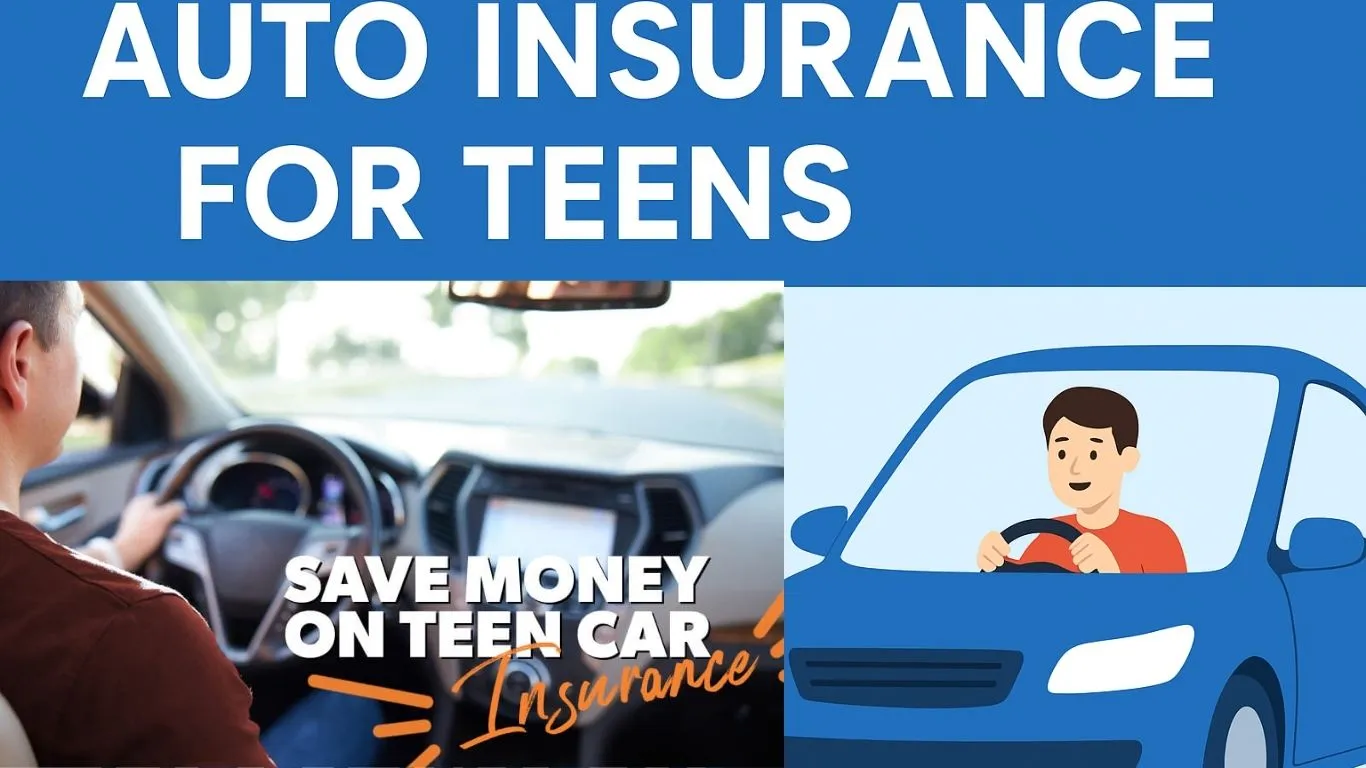Auto Insurance for Teens: 5 Things Every New Driver Must Know
So you’re new to driving and you’re just starting off and you’re not quite sure what the next steps are. What should you do? Do I need to get a quote? What kind of prices can I expect to pay? And all in general, what all together should you be knowledgeable with regarding insurance?
Well, in today’s article, we’re going to talk really in depth on the five main things that you really, really need to know. We’re not going to go into super in depth because each of these categories has its own article. So if you want to check those articles out, I’ll try to link them as I go; otherwise, check out my website or channel Think Insurance Guide or Think Insurance where I go through those in depth for you.auto insurance for teens properly read.
1. How Auto Insurance for Teens Rates Fluctuate
The number one question is how do the rates fluctuate. There are really five pieces of that:
- Credit – Your credit plays a factor. So if you’re young, you don’t have a huge credit score, and that’s one of the reasons the prices are going to naturally be higher.
- Driving History – Your history of driving is going to play a factor. Your lack of driving skill or talent, depending on how old you are. You could be 50 and just start driving, but some companies ask you how long you’ve had your license. So the driving history plays a big piece.
- Vehicle – The vehicle you pick is also going to play a factor depending on the safety rating of that vehicle.
- Location – Where you live matters; it depends on how many accidents are in your area.
- General Questions – These create what’s called a profile: are you female, are you married, are you a homeowner, are you going to buy life insurance, are you going to buy home insurance? All of those combinations create discounts, not necessarily rating factors, but they all add up into bundled prices. That’s essentially how you’re going to get the best deals in the insurance industry.
Also read:-Cheap Car Insurance for Young Drivers – The Ultimate Guide
2. Be Careful With Discounts
The second piece you need to know is to be very careful with these discounts that companies are going to offer you.
There’s something called telematics and it’s an amazing program. It’s for those who want to prove they have good driving skills. If you’re like me, you’re constantly touching your phone, and the driving is ranked by your actual usage of your phone. It determines where you go, how fast you stop, how fast you take off. If you’re using your phone while you’re driving, in most cases those telematics are going to cost you more money in the companies you lean towards.
The opposite scenario: if they offer a teen driving or a new driver course, those will give you some discounts. But typically, the amount of work you put in for it isn’t always worth it depending on the company. Some medium to larger companies are going to give bigger discounts for that. Companies like AAA, Safeco, Citizens, Liberty Mutual — all of those companies focus on keeping parents with a son or daughter insured, and they want to give bigger discounts for that. That’s the opposite piece that helps you propel forward.
There’s not much else I can tell you as far as driving tips — which ways you should look or how fast you should stop — it’s just going to take practice. That’s why a large piece of a rating is the driving history. The longer you’ve been driving, the more comfortable you are with it.
3. What To Do If You’re in an Accident
The third piece is what to do if you’re in an accident. If you do have an accident, you’ve got to quickly determine what the next steps are.
Overall, if you’re in an accident, you have to determine quickly: was it your fault or not? If you’re not sure, unfortunately you just have to let the police decide that. If you know it wasn’t your fault, make sure you document everything. Even if it was your fault, make sure you document everything. It’s okay to collect someone’s insurance information; it’s okay for them to collect yours. Just know that in some states it’s not required.
For example, in no-fault states like Michigan, you don’t have to collect any data. Everyone goes off on their own claims, their own insurance. It’s good to collect their data, but it’s usually done with the police report. The police are the mediators, collecting data from both ends. You file a report; your insurance can pull the data from them. If it’s not your fault, they can go after their insurance and get the claim essentially settled and handled. If it is your fault, their insurance is going to pay the other insurance and it will all be taken care of.
If you’re a new driver and you’re wondering how much your price will change if that happens: it’s a lot — 30 to 40 percent higher — just because you’re already high risk due to the lack of history, and now we add that accident on top of it. You’re probably going to get a ticket with it, which is a different scenario I’ll link in another article. Hopefully, you’re with a company that might give you accident forgiveness. There are different pieces you can buy and discounts to help in those situations.
It’s always good to ask somebody if you can call your parents or a friend who knows what they’re doing. Just be ethical about it. If you lie and cheat and get caught, it doesn’t matter — you might be labeled as fraud, which is ten times the price, and you definitely don’t want that on your insurance history.
4. What Happens If Your Car Is Stolen
If your car is stolen, comprehensive coverage is what covers that. You’ve got:
- Liability coverage for others
- Liability coverage for yourself
- Comprehensive coverage for your car in case of theft, vandalism, hail damage, or hitting an animal
- Collision coverage if you hit another vehicle
With comprehensive, you normally pay a deductible unless you’re in a state that waives it. Some states allow a zero-dollar deductible, so you don’t pay anything. You pay that in your monthly payment, and in incidents where you do claim, you don’t have to pay out of pocket.
Be careful because some states, like Texas, rate claims differently. Whether it’s your fault or not, your rates might go up regardless.
5. How To Get The Best Rate
The fifth piece (bonus) is how to get the best rate. There’s a “profile” which is a mix of everything we just mentioned — your credit, your location, all that data.
When you shop within companies, the best price often comes from being added to someone else’s policy, assuming they have a clean history, decent credit score, and aren’t paying a ton. If you live in their household, you can usually get a lower price almost every time. You don’t need to shop around, check quotes elsewhere, or do anything else. Nine out of ten times, if you’re a new driver going under someone else’s policy, you get their history, longevity, and discounts automatically.
If you do need to shop at this point, there are many steps to take. I’ve linked a company below that you can check out. Before doing that, know the questions they’re going to ask so you can prepare. There’s another article that goes over main questions insurance agents or websites ask — it will go in depth on what data you can and should share.






